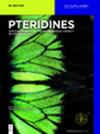早期肠内营养支持对老年急性脑卒中合并吞咽困难患者氮平衡及Nihss评分的影响
IF 0.9
4区 医学
Q4 BIOCHEMISTRY & MOLECULAR BIOLOGY
引用次数: 2
摘要
摘要本研究旨在评价早期肠内营养支持(EENS)对老年急性脑卒中合并吞咽困难患者氮平衡及美国国立卫生研究院卒中量表(NIHSS)的影响。回顾性分析我院数据库中68例急性脑卒中(ABS)患者。纳入的68例ABS患者中,37例在ABS诊断后72h内给予早期EENS(实验组),31例给予常规流质饮食(对照组)。EENS后1、2、3、4周,试验组氮平衡分别为-4.3±1.3、-3.4±1.1、-2.6±1.2和-2.0±1.1(g/d),对照组氮平衡分别为-8.5±3.1、-7.0±2.4、-6.2±1.5和-5.7±1.1(g/d)。说明试验组氮平衡显著高于对照组(p<0.05)。治疗后,实验组与对照组NIHSS评分分别为7.3±2.3分、7.4±2.4分,差异有统计学意义(p<0.05)。实验组出现反流、腹泻和静脉曲张的风险显著低于对照组(p<0.05)。EENS可以快速改善老年患者ABS的负担,提高营养水平,降低相关并发症的发生风险。本文章由计算机程序翻译,如有差异,请以英文原文为准。
Effect of Early Enteral Nutrition Support on Nitrogen Balance and Nihss Score in Elderly Patients With Acute Cerebral Stroke and Dysphagia
Abstract The aim of this study was to evaluate the clinical efficacy of early enteral nutrition support (EENS) on nitrogen balance and National Institute of Health stroke scale (NIHSS) in elderly patients with acute cerebral stroke and dysphagia. Sixty-eight patients diagnosed with acute brain stroke (ABS) were retrospectively analyzed in our hospital database. Of the included 68 ABS subjects, 37 patients were given early EENS within 72h after ABS diagnosis (experiment group) and the other 31 cases were given a regular liquid diet (control group). The nitrogen balance 1, 2, 3 and 4 weeks after EENS were -4.3 ± 1.3, -3.4 ± 1.1, -2.6 ± 1.2 and -2.0 ± 1.1(g/d) respectively for the experiment group and -8.5 ± 3.1, -7.0 ± 2.4, -6.2 ± 1.5 and -5.7 ± 1.1 (g/d) respectively for the control group. This indicated that the nitrogen balance in the experimental group was significantly higher than that of the control group (p<0.05). After treatment, the NIHSS score were 7.3 ± 2.3 and 7.4 ± 2.4 in the experimental and control groups respectively with statistically significant difference (p<0.05). The risk of developing regurgitation, diarrhea and ventosity in the experimental group were significantly lower than that of the control group (p<0.05). EENS can quickly improve the burden of ABS in elderly patients, elevate the nutritional level and reduce the risk of related complications.
求助全文
通过发布文献求助,成功后即可免费获取论文全文。
去求助
来源期刊

Pteridines
生物-生化与分子生物学
CiteScore
1.20
自引率
25.00%
发文量
6
审稿时长
>12 weeks
期刊介绍:
Pteridines is an open acess international quarterly journal dealing with all aspects of pteridine research. Pteridines are heterocyclic fused ring compounds involved in a wide range of biological functions from the color on butterfly wings to cofactors in enzyme catalysis to essential vitamins. Of the pteridines, 5,6,7,8-tetrahydrobiopterin is the necessary cofactor of several aromatic amino acid monoxygenases, the nitric oxide synthases and glyceryl ether monoxygenase (GEMO). Neopterin plays an essential role in the immune system and is an important biomarker in laboratory medicine for diseases such as HIV, cardiovascular disease, malignant tumors, among others.
Topics:
-Neopterin, dihydroneopterin, monapterin-
Biopterin, tetrahydrobiopterin-
Folates, antifolates, riboflavin-
Phenylalanine, tyrosine, phenylketonuria, serotonin, adrenalin, noradrenalin, L-DOPA, dopamine, related biogenic amines-
Phenylalanine hydroxylase, tyrosine hydroxylase, tryptophan hydroxylase, nitric oxide synthases (iNOS), alkylglycerol monooxygenase (AGMO), dihydropterin reductase, sepiapterin reductase-
Homocysteine, mediators of inflammation, redox systems, iron.
 求助内容:
求助内容: 应助结果提醒方式:
应助结果提醒方式:


